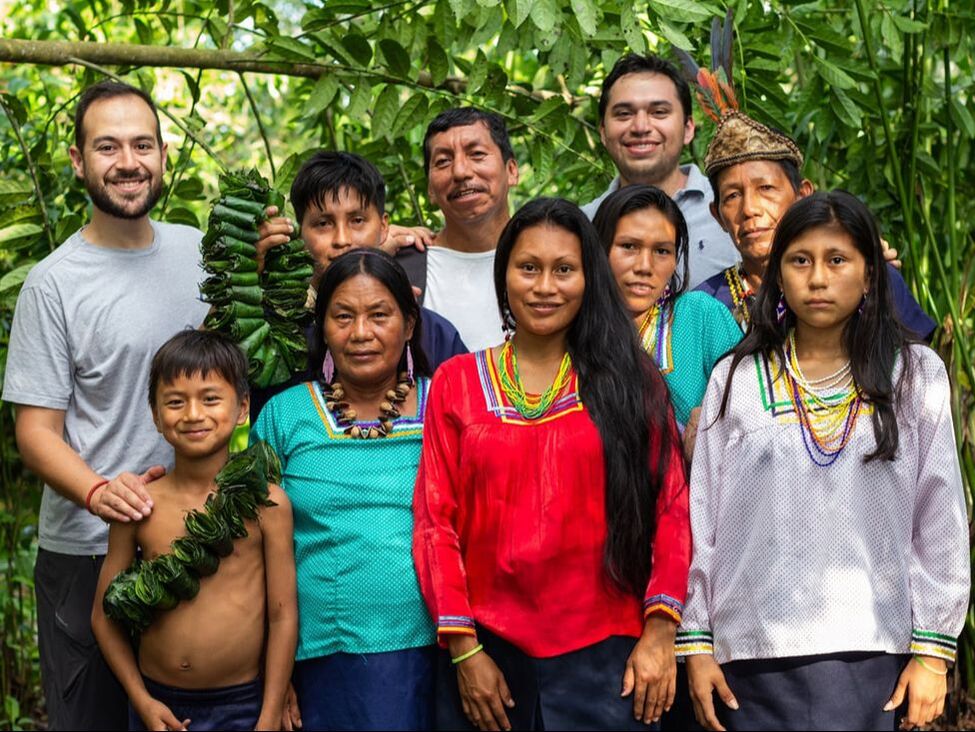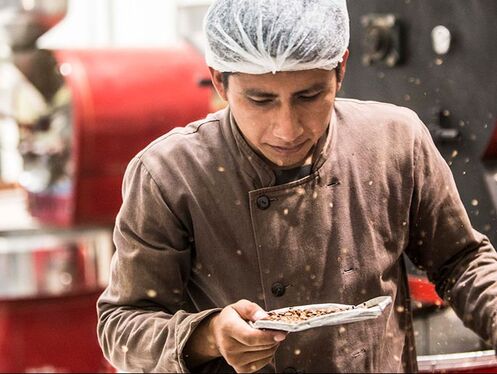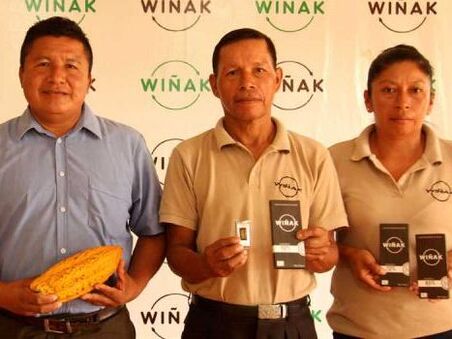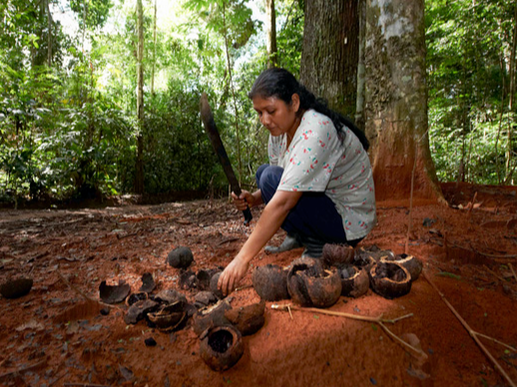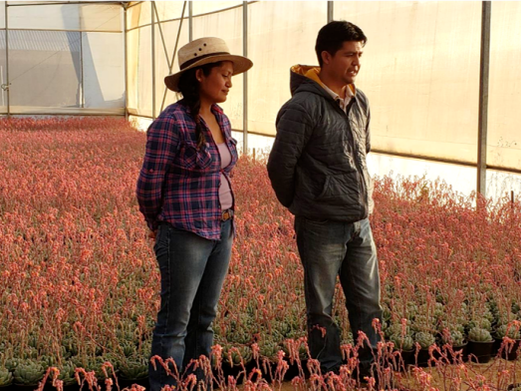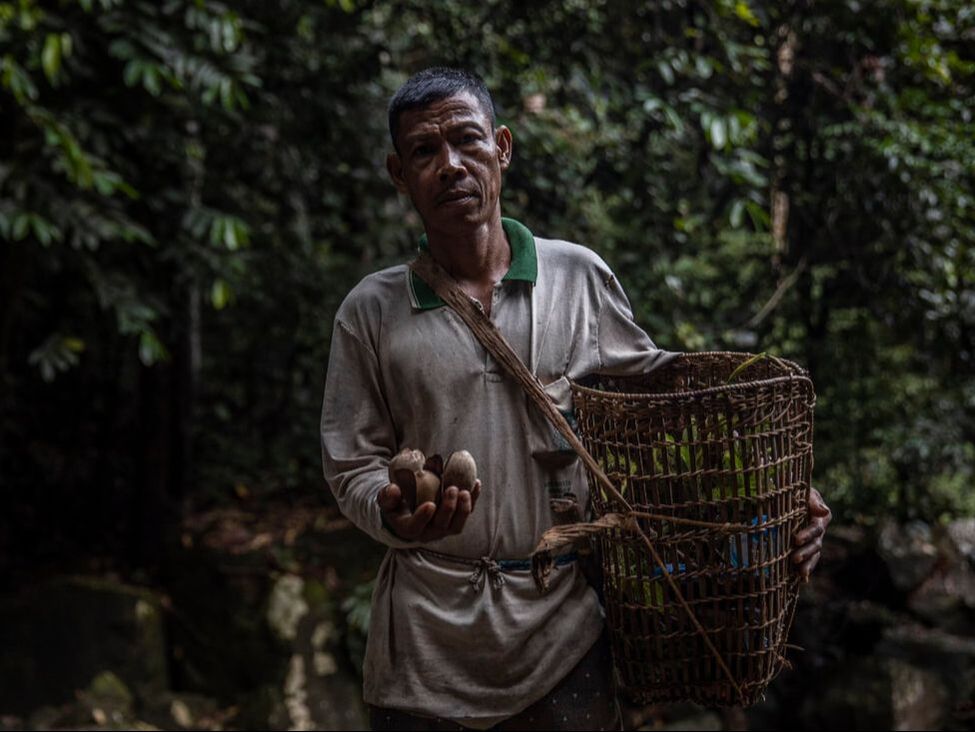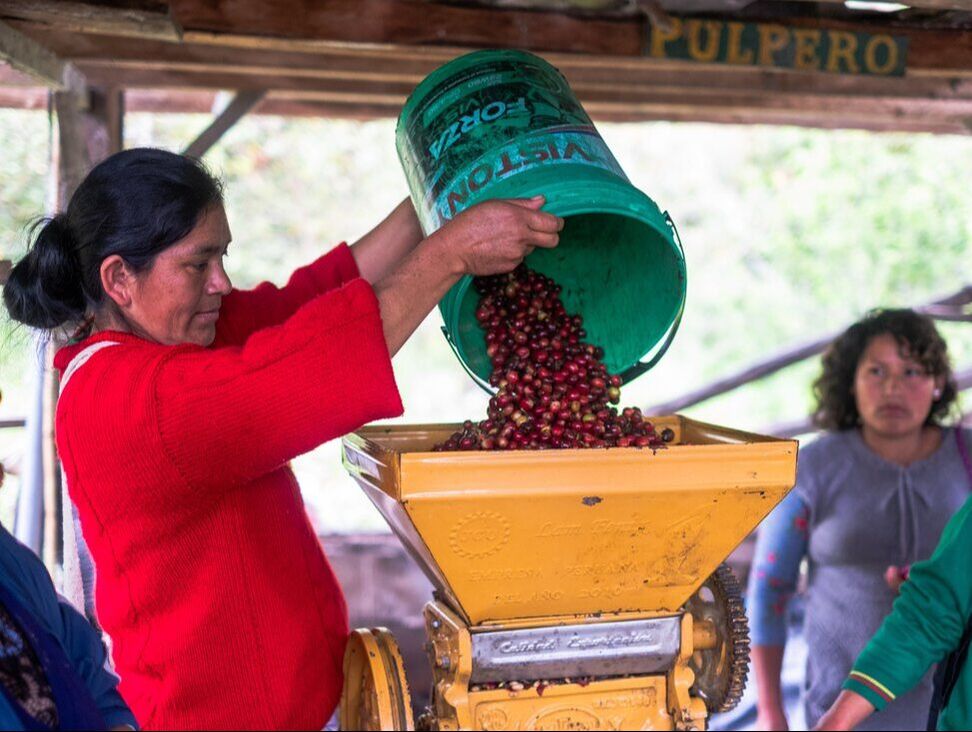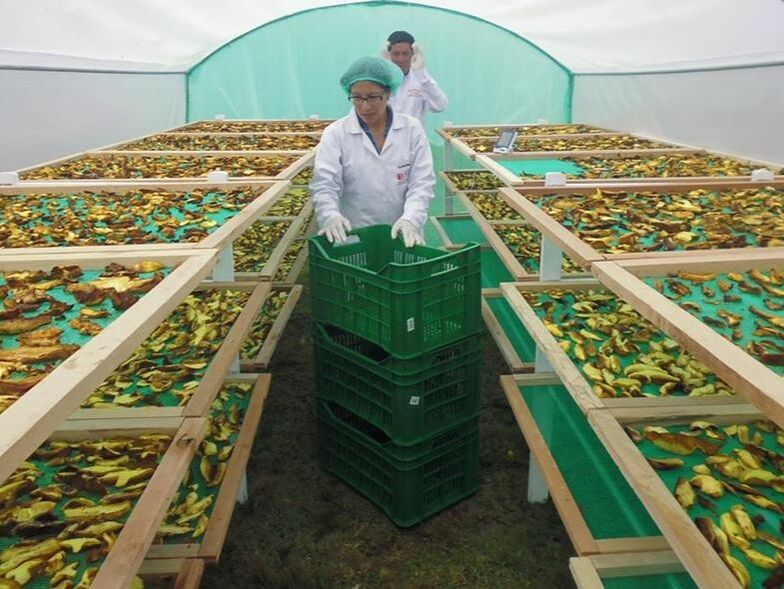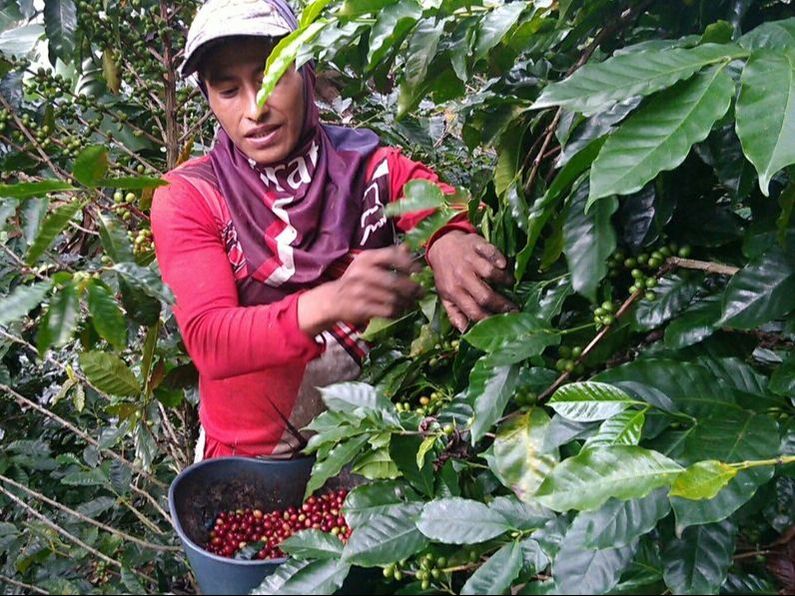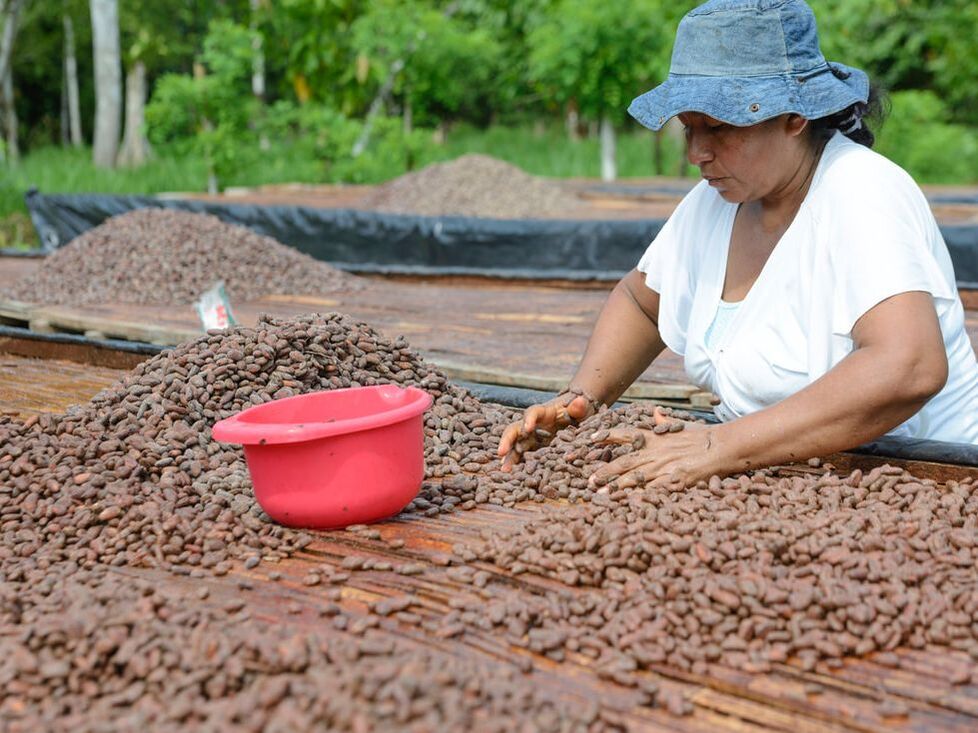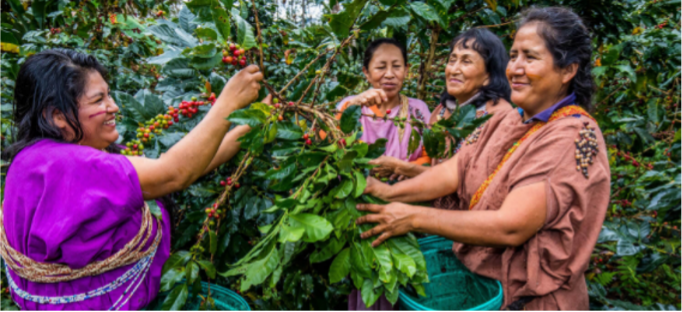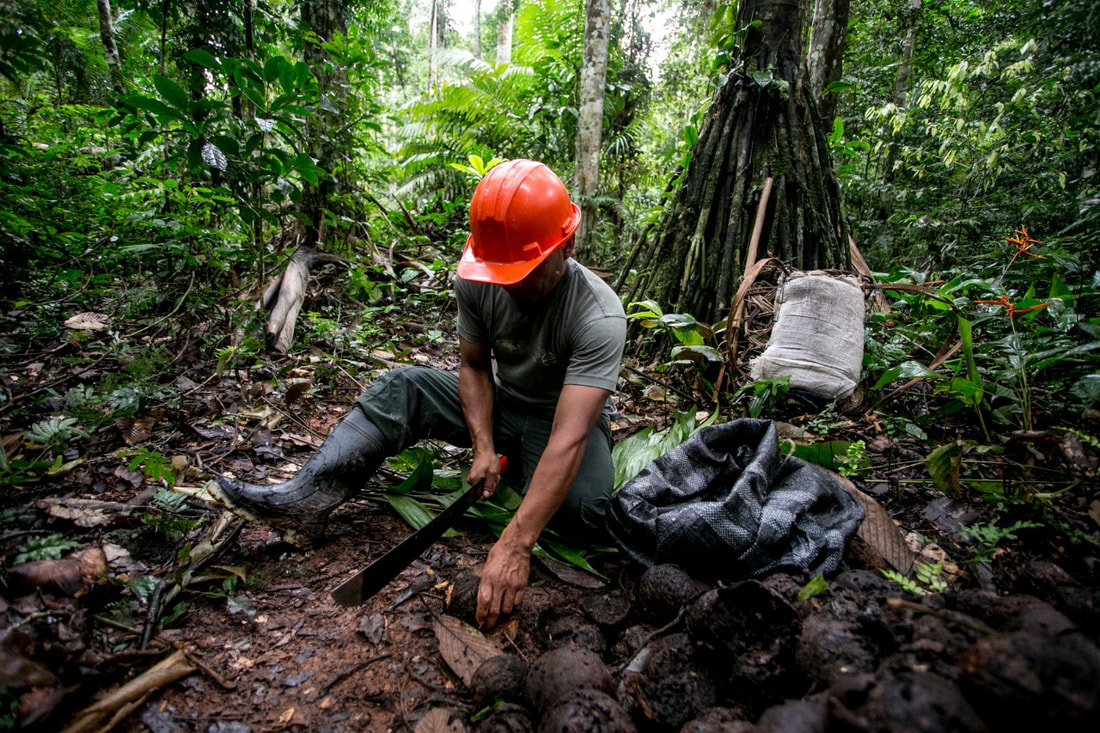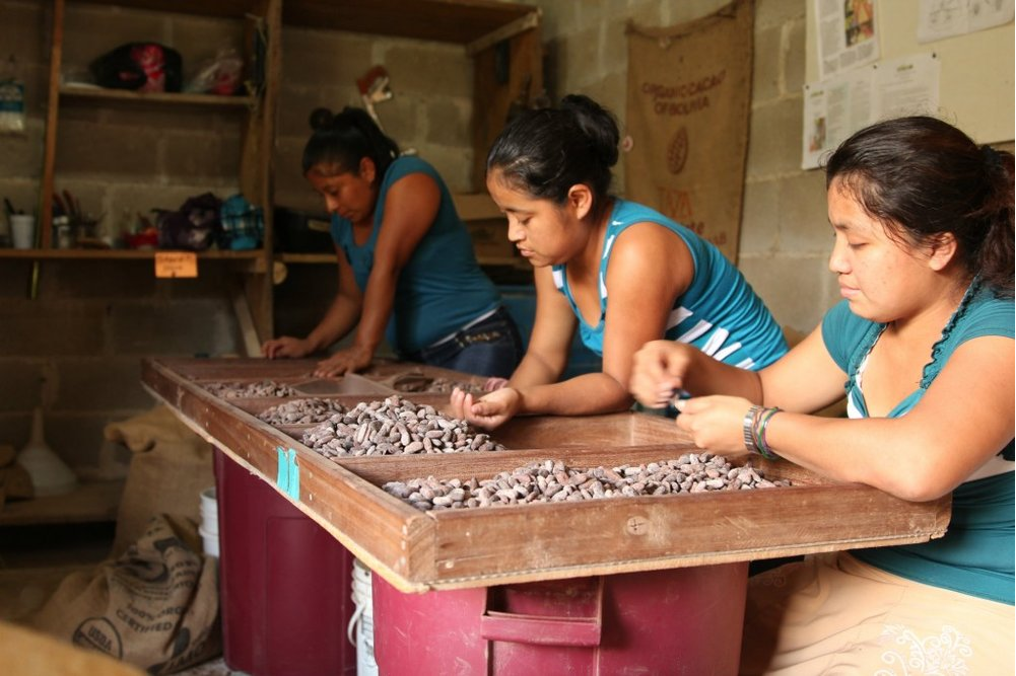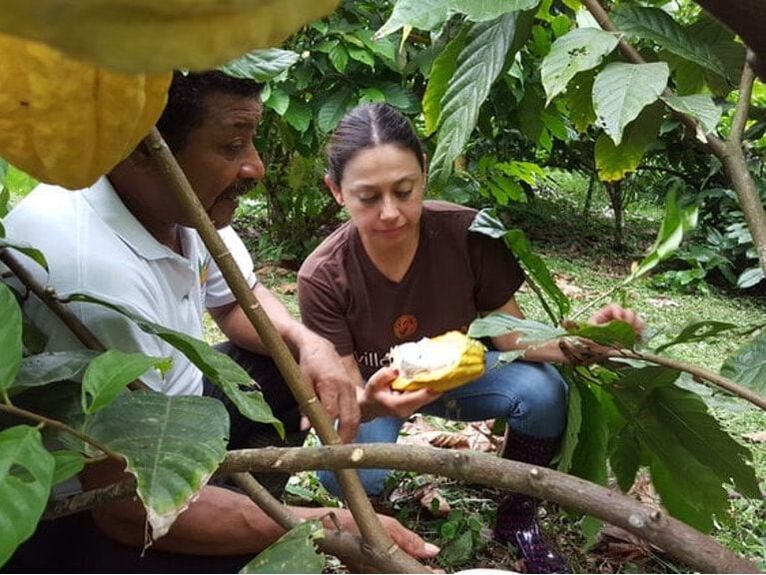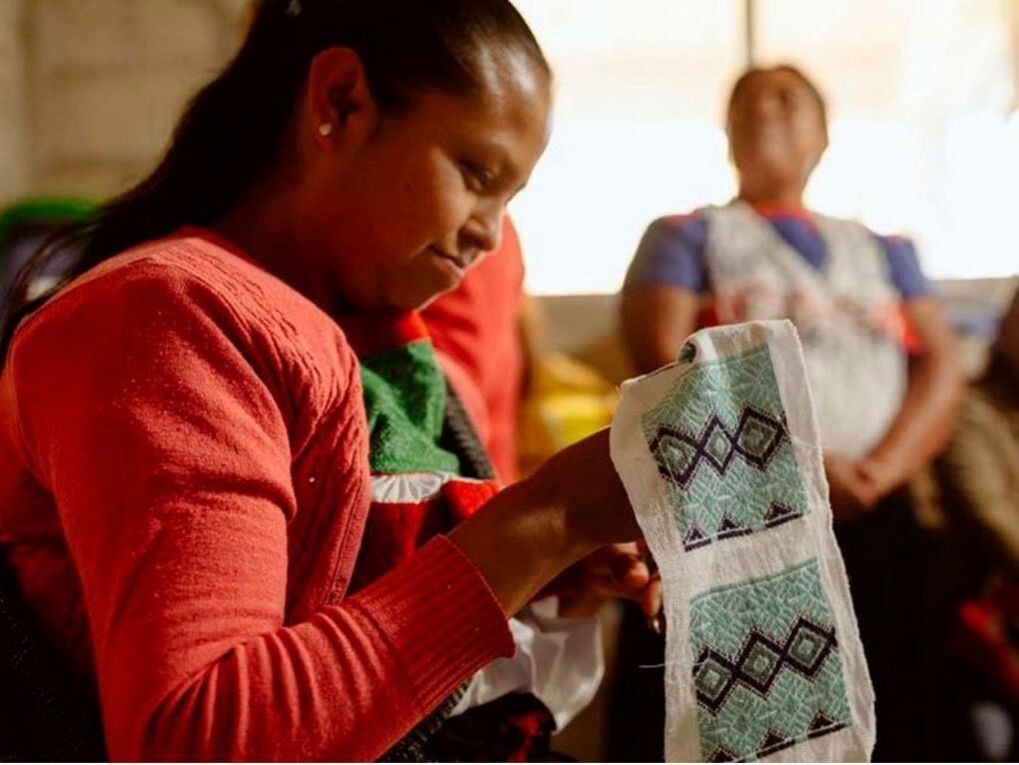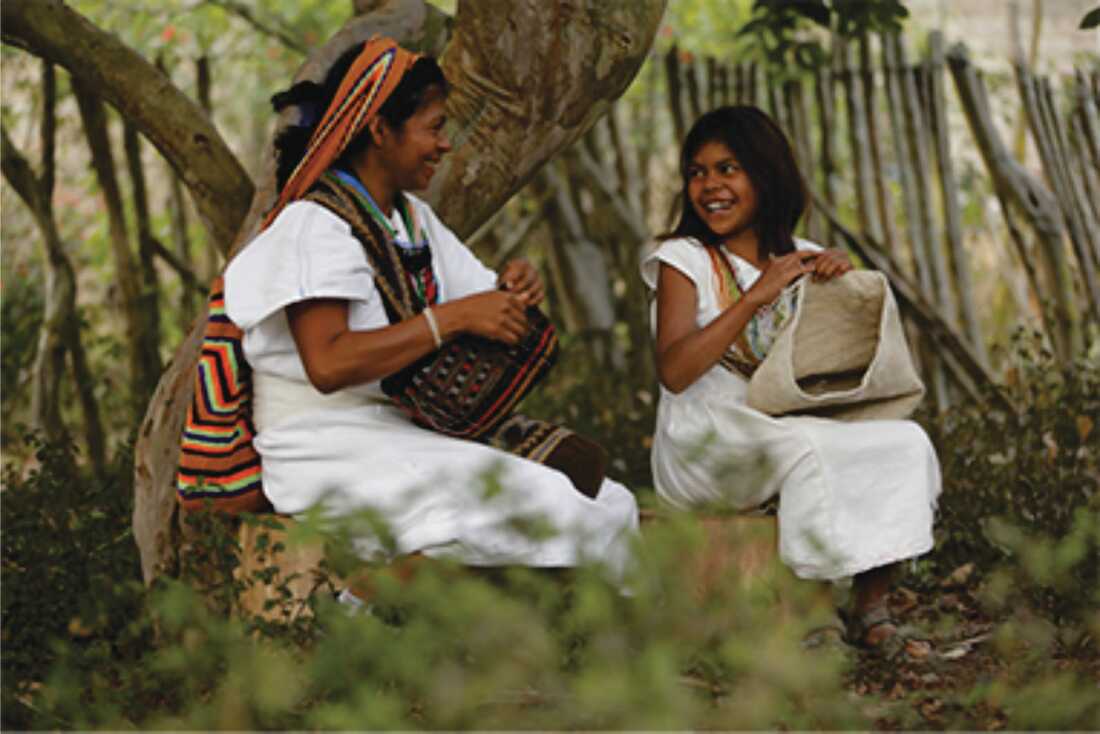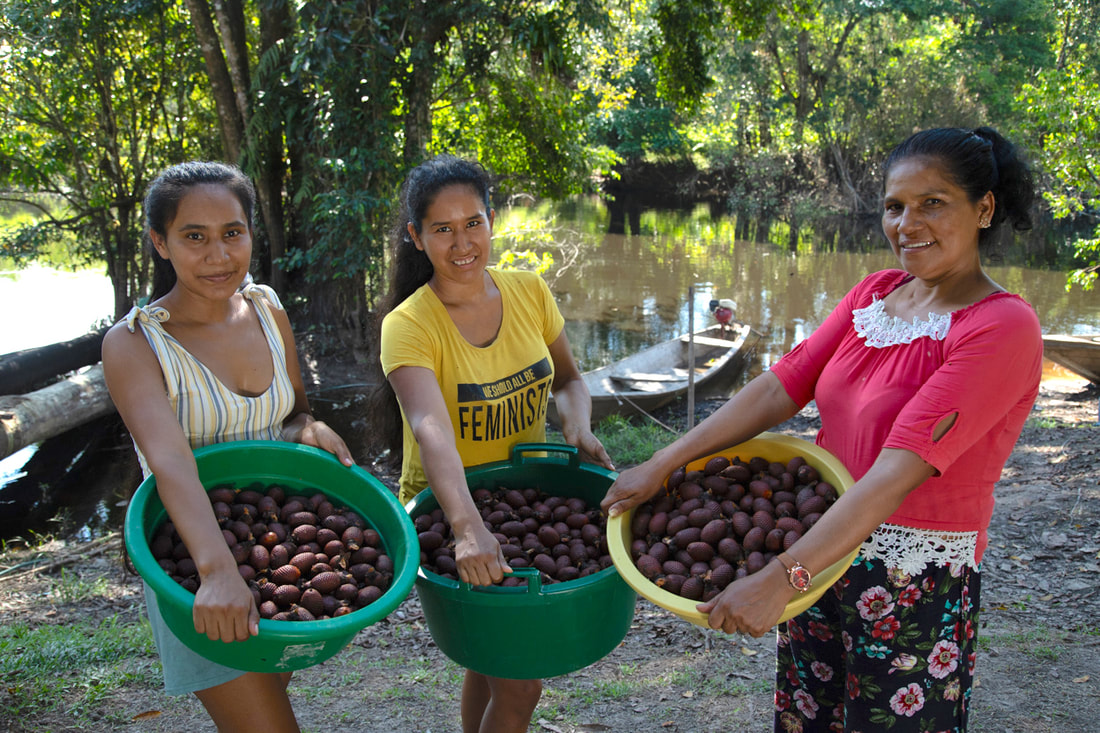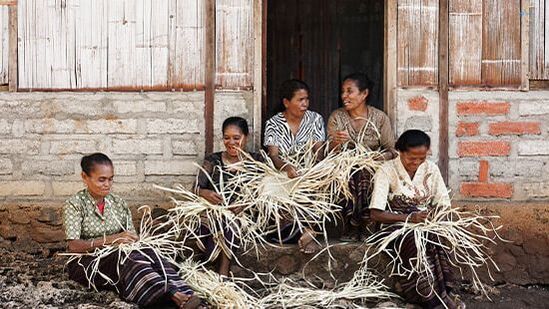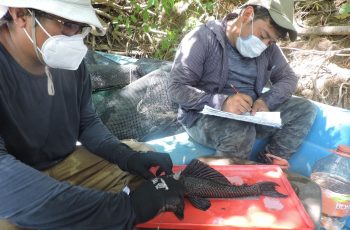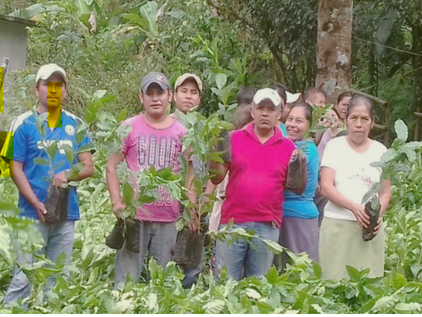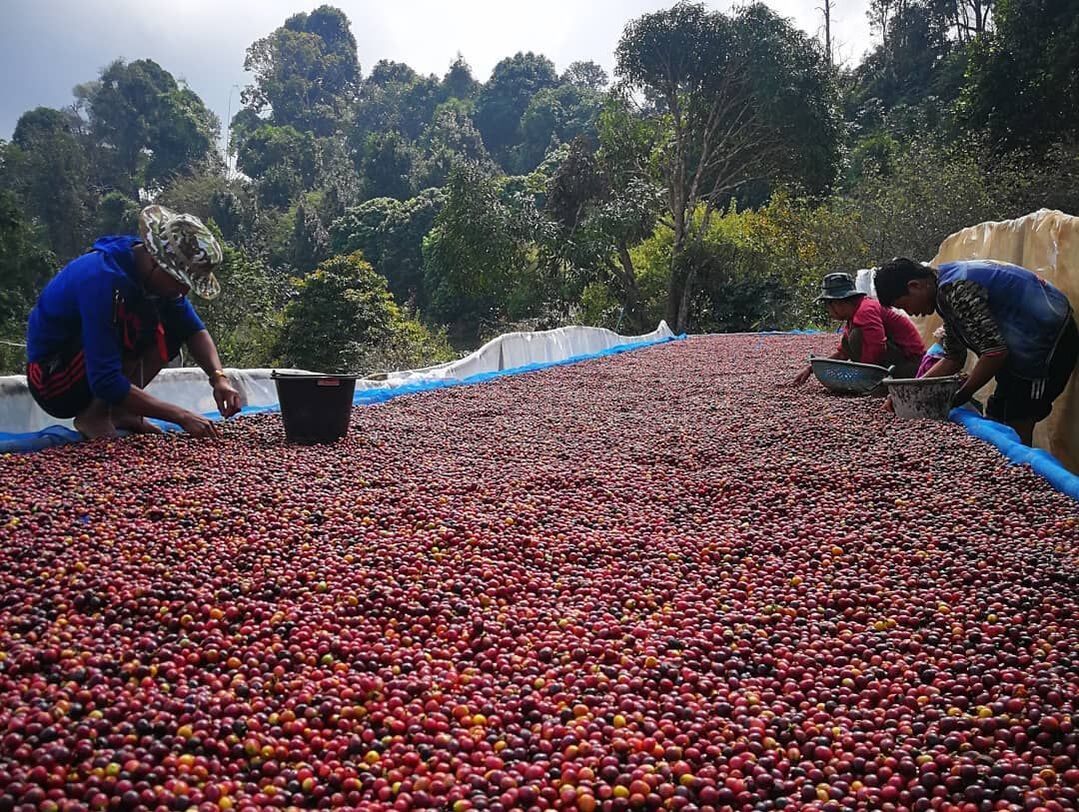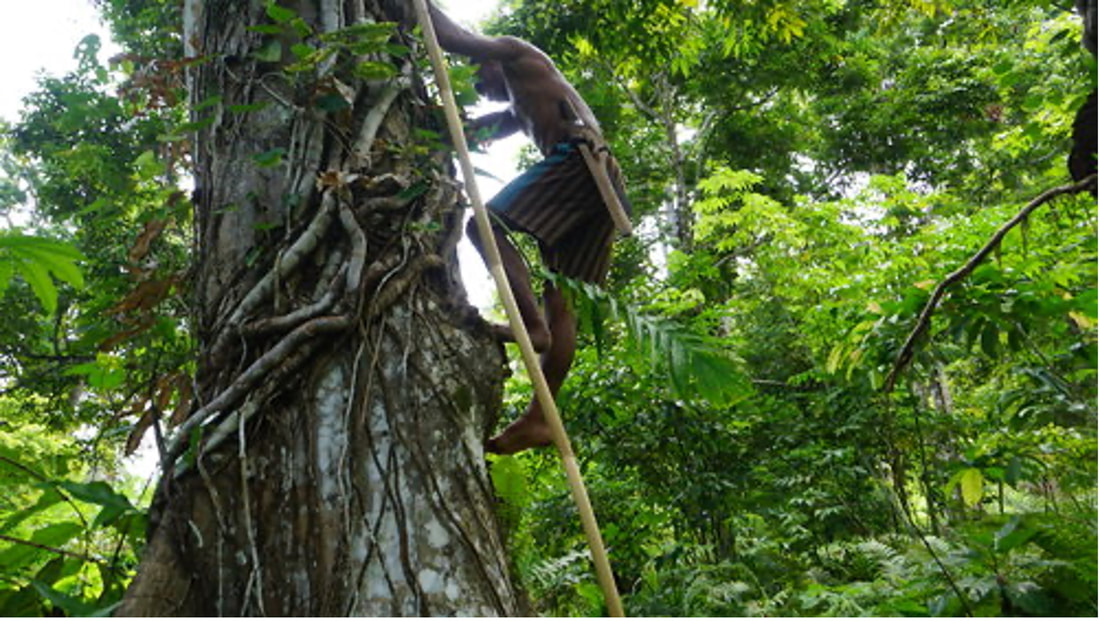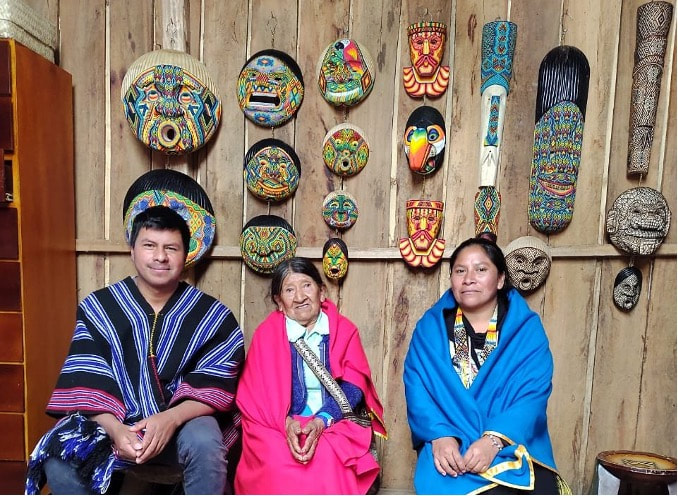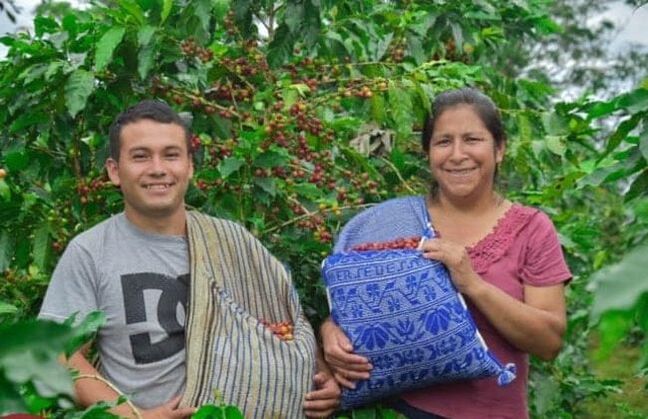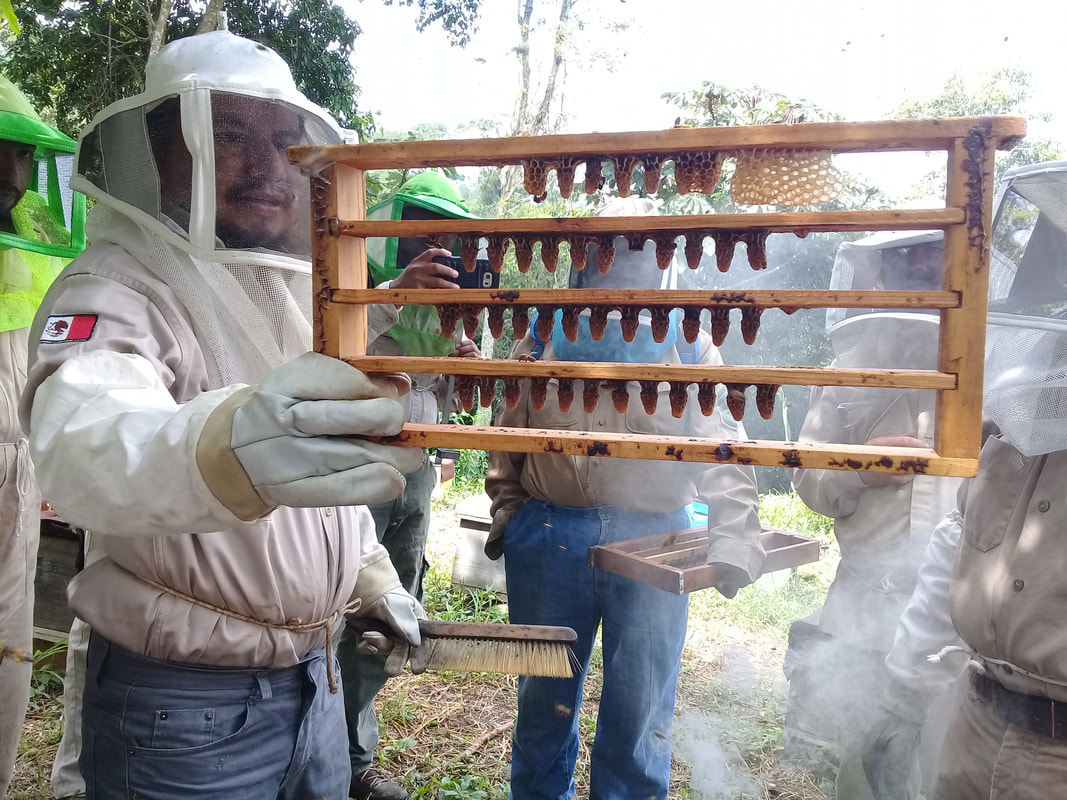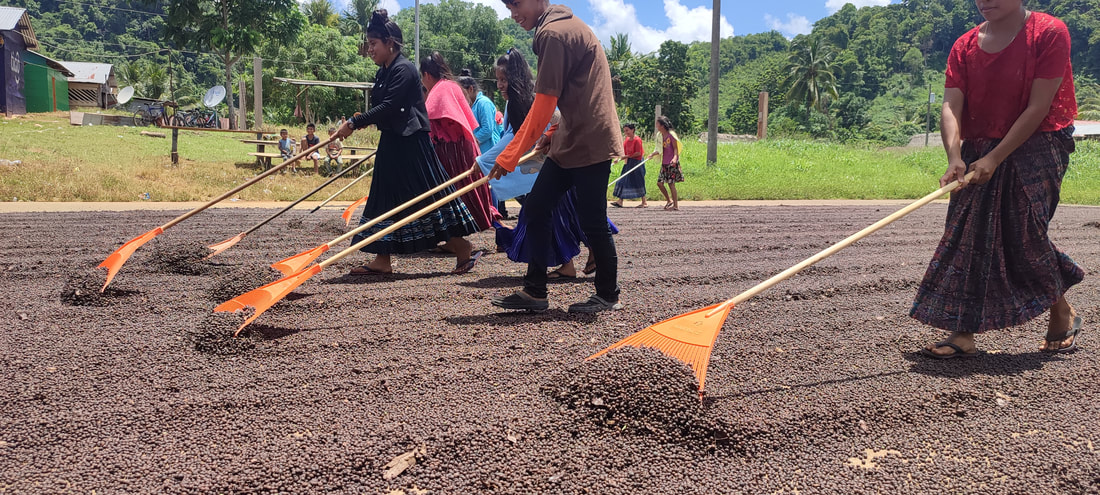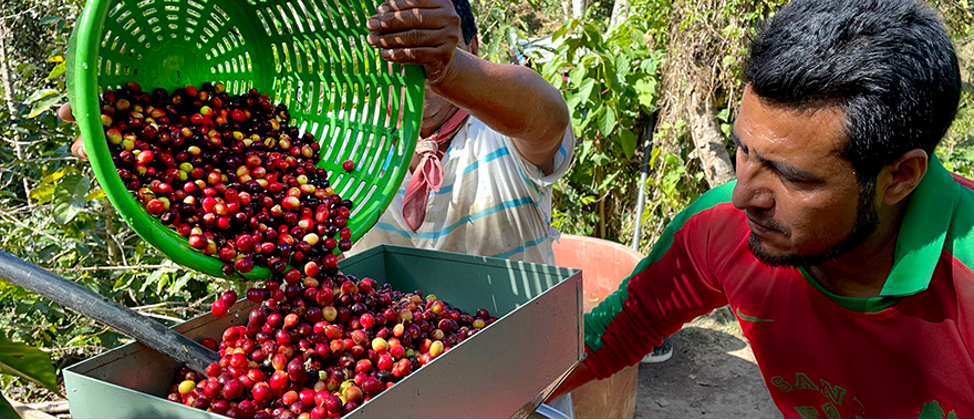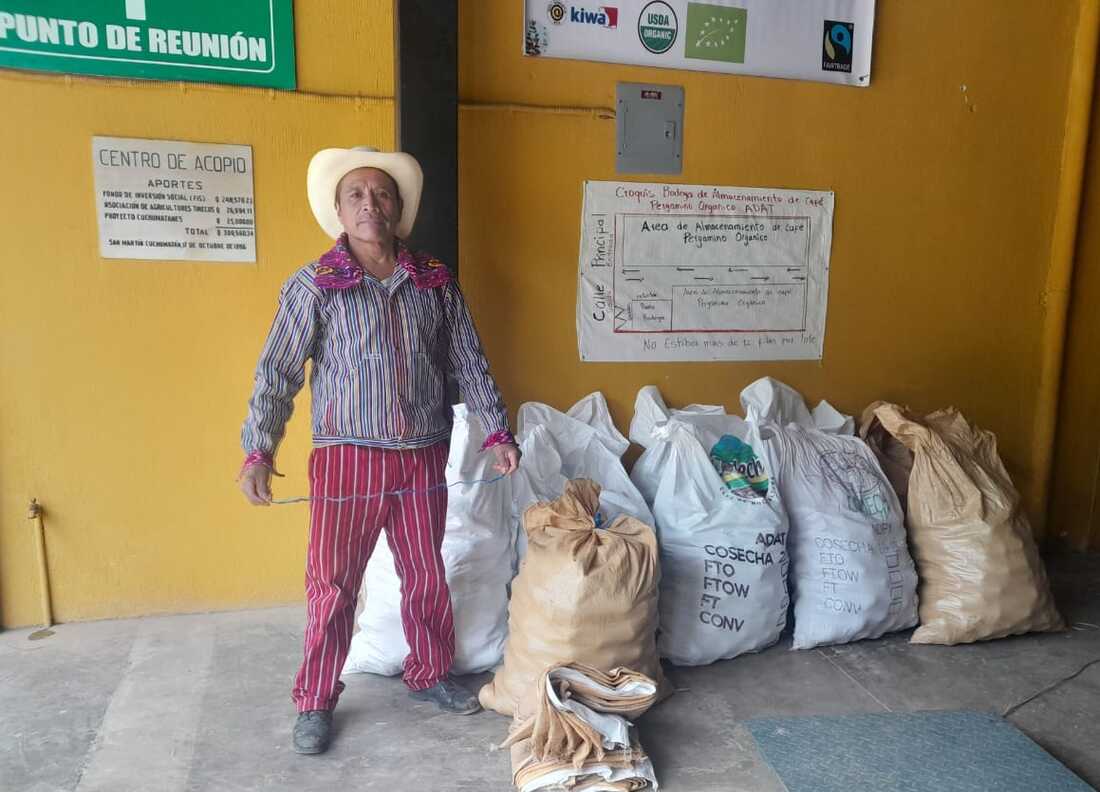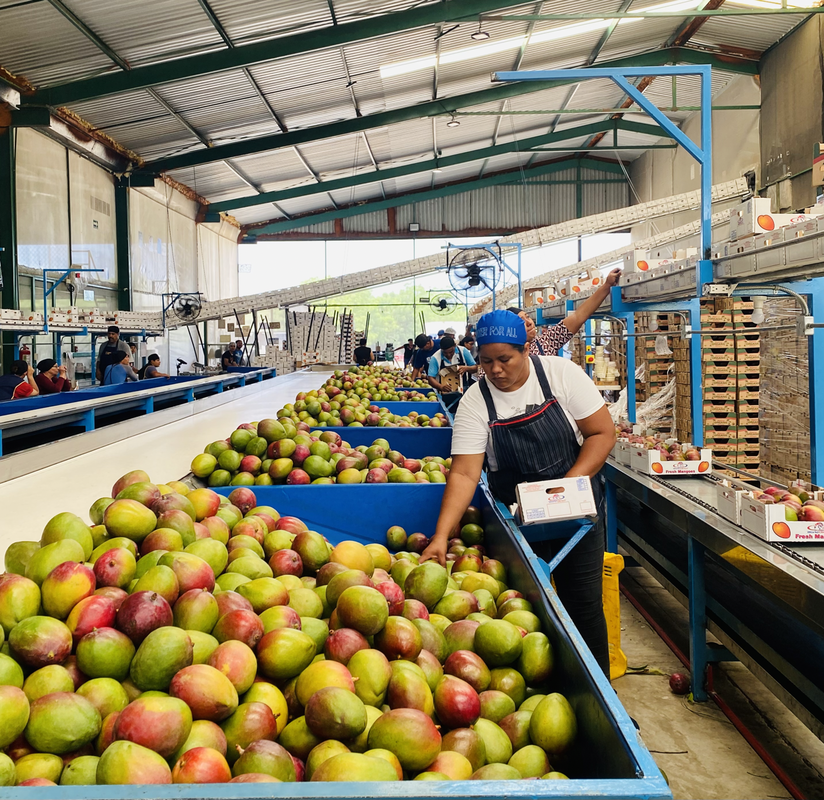waykanaECUADOR
Waykana is a social enterprise that exports guayusa, a caffeine-rich leaf native to the Amazon. Waykana sources from more than 200 Kichwa farming families in the rainforest and creates a profitable alternative to slash-and-burn agricultural methods. Guayusa can be grown with other food, fruit, timber and medicinal plants to create biodiverse and ecologically healthy agricultural plots that allow local farmers to thrive and generate a sustainable livelihood for the community. The Reciprocity Fund provided a $30,000 loan to finance a new cutting machine as it expands its business.
|
FECCEGGUATEMALA
Federación Comercializadora de Café Especial de Guatemala (FCCEG) is a thirteen year-old non-profit that works with 1,500 Mayan producers of organic coffee, sugarcane, and cinnamon in Western Guatemala. Governed as a cooperative, FCCEG provides loans, technical assistance and access to the US market for these farmers, 30% of whom are women. In 2019, the organization generated over $12 M in revenue. The Reciprocity Fund's $75,000 loan helped FCCEG expand their warehouse and administrative offices.
|
Bats’il MayaMEXICO
Bats’il Maya is part of a coffee cooperative that supports over 360 Tzeltal farming families in the central highlands of Chiapas. The cooperative operates a green coffee milling operation, a roasting facility, and three coffee shops. With their vertically integrated model, indigenous producers benefit economically from the value-add of milled, roasted coffee, and brewed coffee. The Reciprocity Fund provided a total of $100,000 working capital line to manage the timing gap between paying farmers and receiving payment from export customers.
|
WIÑAKECUADOR
Wiñak is a non-profit agricultural association, the first to be fully Kichwa-owned and operated. Based in the Napo Region of Ecuador, Wiñak sells plantains, cacao, guayusa, and cassava sustainably grown by over 250 Kichwa farmers from around 60 separate communities. Their work aims to preserve Amazonian cultural and conservation practices, while establishing food security and economic viability for the Kichwa people. The Reciprocity Fund provided a $54,000 loan to Wiñak to support operations and acquisition of awnings for cacao drying.
|
RONAPPERU
Recolectores Organicos de la Nuez Amazonica Del Peru (RONAP) is a small cooperative of wild Brazil nut collectors from the Madre de Dios region of Peru, an area that has suffered tremendous environmental degradation due to mining. The Reciprocity Fund extended a $75,000 loan to RONAP for its construction of a warehouse to support the expansion of its export business.
|
XAXENIMEXICO
Grupo Xaxeni preserves Mexican biodiversity through the development of a network of mostly indigenous smallholder farmers who grow native Mexican plants. Grupo Xaxeni seeks to promote ecological and economic value of these plants by creating a market for their use in landscaping, biotechnology, and as active ingredient for consumer goods. The Reciprocity Fund extended a
$ 75,000 term loan to purchase native plant seeds and to expand their research, production, and marketing. |
FOREST WISEINDONESIA
Forest Wise sources, processes, and sells natural, sustainably harvested rainforest products. The social enterprise provides livelihoods to hundreds of local Dayak community members while creating an economic incentive to preserve the biodiversity of their native lands – the tropical lowland forests of Borneo. The Reciprocity Fund extended a $50,000 loan to Forest Wise to manage working capital requirements and increase production capabilities.
|
CoopbamPERU
COOPBAM is a coffee-growing cooperative operating in the Alto Mayo Protected Forest of Peru. The cooperative provides farmers with agricultural training, financial skills, and access to specialty-grade coffee markets to promote socio-economic development in their communities. In exchange, the farmers commit to zero net deforestation. COOPBAM is supported by Conservation International, in partnership with local communities and the Peruvian government. The Reciprocity Fund extended a $75,000 loan to help COOPBAM ensure farmers are paid soon after harvest, a condition that helps them maintain the fair-trade premium and further increase farmers' income .
|
SIMBIOSISPERU
Simbiosis is a Peruvian social enterprise that provides livelihoods and empowers poor Andean women. The company sells Boletus luteus, a native Andean mushroom, for the export market. The business employs 320 mushroom producers, most of whom are women, who harvest the wild mushrooms and dry them. During mushroom season, which lasts 5-7 months, Simbiosis workers earn an average of $500 of supplemental income. The Reciprocity Fund provided a $75,000 loan to install solar dryers which are 10x more efficient and produce better quality mushrooms that sell for 30% higher.
|
|
CENCOIC
COLOMBIA CENCOIC is a coffee-growing cooperative in Cauca, Colombia, home to the Nasa tribe, the third largest indigenous group in Colombia. More than 2,500 farming families sell their coffee through CENOIC which handles all processing and international sales. CENCOIC also operates a buying cooperative which gives its members access to more affordable medicine and health supplies. CENCOIC consists of 19 associations spread across southwestern Colombia. The Reciprocity Fund extended a $100,000 working capital loan to help bridge the timing gap between coffee harvest and payments from customers.
|
|
CORTEPAZ
COLOMBIA Cortepaz is a cocoa cooperative located on Colombia's Pacific coast. The cooperative's members are of Afro-Colombian descent, and represent some of the most marginalized people in the country. Cortepaz groups individual farmers into units to enhance agricultural productivity, and currently has 200 groups cultivating cocoa and other crops. By offering technical training, social support, and access to national and international markets, Cortepaz improves the lives of its beneficiaries. Cortepaz also aims to preserve its members' heritage and protect the land's biodiversity. The Reciprocity Fund extended a $25,000 loan for irrigation and drainage improvements to increase crop yield and improve crop quality.
|
|
CEPRO YANESHA
PERU CEPRO Yanesha (CAC CEPRO Yanesha) is a coffee cooperative from the Oxapampa province in the Central Jungle of Peru. Its members come from 7 native Yanesha-villages. The cooperative has 141 coffee partners, of whom 98 are men and 43 are women. The Reciprocity Fund extended a $75,000 loan to help fund the construction of a green coffee processing facility, which will allow the cooperative to move up the value chain and improve the overall quality of its products. |
|
AFIMAD
PERU The Asociacion Forestal Indigena de Madre de Dios (AFIMAD) is an organization of indigenous communities from 7 villages harvesting Brazil nut in Madre de Dios, Peru. Since 2008, they have been exporting certified organic and free trade Brazil nut and other forest products to the US. The Brazil nut, native to the forests of the Amazon, provides a sustainable economic alternative for the communities in Madre de Dios. The Reciprocity Fund extended a $50,000 loan to provide financing to farmers between harvest time and point-of-sale. |
|
COOPAVAM
BRAZIL COOPAVAM purchases and processes Brazilian nuts from smallholder farmers in the Mato Grosso region of the Amazon Forest. The nuts, collected by over 400 employees from six indigenous tribes, are converted into oil and flour that is sold to companies in food and beauty industries. Since 2008, COOPAVAM has provided sustainable income to indigenous communities through fair-trade agreements, and conserved thousands of hectares in order to prevent deforestation and other predatory activities. The Reciprocity Fund provided a $75,000 working capital loan to ensure nut collectors are paid soon after harvest. |
|
MAYA MOUNTAIN CACAO
BELIZE Maya Mountain Cacao is the largest exporter of cacao in Belize, working with Mopan Maya and Kekchi Maya farmers from the Toledo district. By introducing better rootstock, centralizing post-harvest processing and drying operations, and providing technical assistance, MMC's farmers earn more for their world-class cacao. Today, MMC sells more than 75 metric tons per year of export-grade cacao. The Reciprocity Fund provided a $42,000 loan to purchase a truck for more efficient transport of cacao to their processing center. |
|
UOPROCAE
ECUADOR UOPROCAE is an association of 5 grassroots organizations in Esmeraldas, Ecuador producing and exporting organic and fair-trade cocoa while improving ecological diversity in plantations. They cultivate 1,370 hectares of cocoa and produce 337 metric tons per year. By linking 4,250 farmers to the international community and promoting organic and fair-trade certification, producers see income growth of up to 40%. The Reciprocity Fund provided a $40,000 loan to support the working capital needed to fulfill orders for a growing international customer base. |
|
SOMEONE SOMEWHERE
MEXICO Someone Somewhere is a Certified B Corporation that works with 295 indigenous artisans in Mexico, 75% of whom are women, to produce and sell sustainable and ethically-sourced lifestyle and fashion products. By connecting artisans to consumers and corporations worldwide, they are able to significantly improve their livelihoods while preserving centuries-old traditions. The Reciprocity Fund provided a $40,000 working capital loan to fulfill a major partnership with Delta Airlines to produce amenity kits for business class passengers, which will also reduce their plastic use by 90,000 pounds. |
|
ASOSEYNEKUN
COLOMBIA ASOSEYNEKUN is an association of 263 Arhuaco indigenous producer families from the community of Jewrwa, located in the Northeast of Colombia by the Venezuelan border. The members are known for using traditional farming techniques while conserving the environment. They work to improve the well-being, self-sustainability, and socioeconomic development of indigenous families through the production of organic and fair trade coffee, cocoa, and panela (sugar cane). The Reciprocity Fund provided a $40,000 term loan to finance a coffee drying plant. |
|
ECO OLA
PERU Eco Ola sources, processes, and sells sustainably harvested forest products from the Peruvian Amazon. Through the introduction of sustainable agriculture to communities typically engaged in monocrop agriculture and in areas affected by deforestation, Eco Ola increases crop yield and diversity, which ultimately improves livelihoods while restoring the ecological health of the forests. They also offer farmers fair prices for their harvest and give them the opportunity to process raw materials into end products to increase their income. The Reciprocity Fund provided a $35,000 loan for a work truck and new custom-fabricated ovens for their suppliers of Macambo, a native fruit from the cocoa family that is high in fiber, protein, and Omega-9 fatty acids. |
|
DU ANYAM
INDONESIA Du'Anyam is a social enterprise that improves the livelihoods and health of women living in rural Indonesia and preserves local culture through the production of wicker crafts. Du'Anyam has worked with over 1,400 women across 54 rural villages in Indonesia, who have experienced an average income increase of 40%. The Reciprocity Fund provided a $75,000 working capital loan that helped them fulfill orders from commercial clients, including IKEA. |
|
COBIUS
MEXICO COBIUS is a twelve year-old nonprofit protecting the Usumacinta River Basin in Tabasco state, Mexico. They have conserved 255 species in 16 protected natural areas through 60 projects ranging from conservation initiatives, community education, to geographical research that have reached over 65 local communities. In response to invasive fish species disrupting the basin's ecosystem and affecting the livelihoods of surrounding fishing-dependent communities, they have engaged in a market-based solution to provide additional income to affected fishermen by purchasing any invasive fish caught and processing it into clean-label pet snacks exported to the US. The Reciprocity Fund provided an $8,000 loan to finance equipment to expand their production capacity. |
|
TERCER MILENIO
MEXICO Tercer Milenio is a cooperative that sources and sells green coffee from over 1,700 coffee producers across 105 communities in Mexico located in indigenous coffee-growing areas. By promoting and providing training on sustainable organic coffee production and better connecting farmers to the international market, they have been able to increase and stabilize their income. They are using The Reciprocity Fund's $100,000 working capital loan to increase their export sales. |
|
BEANSPIRE COFFEE
THAILAND Beanspire is an 8-year-old company based in Chiang Rai, northern Thailand, that develops and exports Thai specialty coffee to the international market. This contrasts with the majority of the Thai coffee market, where coffee is traded as a low-value commodity. Beanspire works with coffee farmers from Akha and Lahu hill tribes, and increase their income by raising the quality of coffee processing and connecting them to award-winning specialty coffee roasters in the US, Europe, Japan, Australia, and Thailand. They also encourage tree planting and reduce the slash and burn practices common to the region. The Reciprocity Fund provided a $100,000 working capital loan so Beanspire can promptly pay its farmers for their crop. |
|
KAWANASI
INDONESIA Kawanasi is a 7-year-old company based in Jakarta that sources Kenari nuts from the Kayoa people, an indigenous group living in the Spice Islands of Eastern Indonesia. Kenari trees, which are endemic to the area, are increasingly being felled for timber or cleared by mining companies.. By providing the Kayoa people with a livelihood opportunity that supports their way of living with nature and encourages the preservation of the forest, they are fostering both economic empowerment and environmental protection. The Reciprocity Fund extended a $100,000 working capital loan to support Kawanasi's growth in the international market. |
|
ARTE COLIBRI
COLOMBIA Arte Colibri Artesanias produces and sells artisanal crafts, including accessories and decorative items sourced from the Inga and Kamëntsa Indigenous Communities in Sibundoy Valley, Colombia. By connecting indigenous artisans to a wider domestic and international market, ACA helps its suppliers generate higher and more predictable income while preserving their cultural heritage. The Reciprocity Fund extended a $20,000 loan to help Arte Colibri purchase raw materials for their crafts, especially for their chaquira beadwork. |
|
APROGARZA
PERU La Asociacion de Productores de Café del Valle de Garzayacu (APROGARZA) is a cooperative composed of 203 coffee producers located in the Garzayacu Valley in Northern Peru. APROGARZA empowers Peruvian migrants who were internally displaced from political and drug conflicts, and struggle to establish better lives in new communities. By providing training in organic coffee production and connecting farmers to international buyers, APROGARZA helps farmers earn more income and improve their livelihoods. The Reciprocity Fund provided a $30,000 working capital loan to help APROGARZA ensure farmers are paid on time and at fair prices as it grows its coffee production. |
|
MIEL DE MIXTEPEC
MEXICO Miel de Mixtepec is a cooperative that gathers, processes, and sells organic honey from small beekeepers in Oaxaca, Mexico. The cooperative was established in 2011 to improve the livelihood of beekeepers, many of whom are members of the Chatino, Zapotec and Mixtec communities. By encouraging beekeeping, Miel de Mixtepec's cooperative members earn a predictable income while ensuring the pollination of local flora, including squash and pumpkin. The Reciprocity Fund extended a $100,000 loan to upgrade the cooperative's factory and qualify for export certification. When complete, the co-op will be able to directly export to its international customers which will eliminate middlemen and increase farmer income. |
|
ADIRA
GUATEMALA ADIRA is an association of 916 Q'eqchi indigenous families who grow cardamom, pepper, and cacao in the Alta Verapaz province in Guatemala. ADIRA provides technical assistance and commercialization services so small-scale farmers can grow diverse climate-resistant crops on their land while conserving local forests. ADIRA promotes the community's self-sustainable development through its members' active participation in the organization, technical assistance to maintain good agricultural practices, and project development. The Reciprocity Fund provided a $76,000 working capital loan - its first loan ever. The funds will be used to pay the 916 families for their crops as soon as they are harvested, enabling ADIRA to time the market and secure the best prices for their spices and cacao. |
|
ALMA DE CHIAPAS
MEXICO Alma de Chiapas is a cooperative that gathers, processes, and commercializes specialty green coffee sourced from 700 smallholder farmers in the Tumbalá municipality in the Mexican state of Chiapas. Many of the farmers in the cooperative belong to Tzeltal, Tzotzil, Chol, and Tojolabal communities. Alma de Chiapas helps farmers improve productivity, profitability and crop quality by providing financial support to purchase inputs, direct commercialization, and technical assistance. It also enables farmers to earn both a fair trade and organic premium for their crops while improving soil health and food security through intercropping. The Reciprocity Fund extended a $100,000 working capital loan to help Alma de Chiapas purchase coffee at fair prices from a growing base of smallholder farmers |
|
ADAT
GUATEMALA Asociación de Agricultores Tinecos (ADAT) is a Guatemalan association of 448 families, 68% of whom are of Mayan descent, who grow sweet peas, avocado, and coffee. ADAT works in the province of Huehuetenango, where hunger, low earnings from farming and limited jobs have driven many to risk emigrating in search of better opportunities. ADAT makes farming more lucrative and sustainable for its small farmer members by providing farming inputs, direct access to the market, technical assistance, and the opportunity to earn more from the premiums of international certifications. ADAT received a $60,000 term loan to expand its warehouse facility, which will help improve its processes, save on costs, and better maintain quality for organic standards. |
|
EL TABERNAL
MEXICO El Tabernal is an association that produces, packs and sells mangoes grown in Oaxaca, Mexico. It collects mangoes from 200 families, 60% of whom belong to Zapotec and Ikoots indigenous groups. The majority from these groups have been struggling to get by, with many leaving the area for more lucrative economic opportunities. El Tabernal creates seasonal jobs and supports local mango farmers by providing technical assistance and packing services for export, while negotiating fair compensation for farmers. During the mango season, it employs over 1,750 farmers and staff across its mango orchards and plant. The Reciprocity Fund provided a $100,000 working capital loan to pay farmers fair prices for their mangoes at harvest, to purchase inputs, and to hire seasonal staff for the plant. |
|
ASPROQUEMA
COLOMBIA Asociacion de Productores de Queso del Municipio de Anori (Asproquema) is an organization that has been producing cheese for 16 years in Anorí, Colombia. It currently supports 250 smallholder families, 45% of whom belong to indigenous and Afro-Caribbean communities and the majority of whom are victims of armed conflict in the region. Asproquema has helped consolidate and commercialize small scale cheese production activities that have existed in an area with a long history of livestock rearing, offering a safe and sustainable way for dairy families to add value to their milk. Families have especially benefited from the regularity of the income stream as cows can be milked daily compared to the seasonality of farming. We provided Asproquema with a a $50,000 working capital loan to buy 30% more cheese from producers, which will lead to more income for each family. |
|
UNIÓN SAN PEDRO
MEXICO Unión San Pedro is a Zapotec association of 213 coffee producing families in San Pedro el Alto in Oaxaca state, Mexico. Its principal product is shade-grown coffee cultivated in agroforestry systems where coffee grows alongside other crops such as vanilla, cardamom, and cacao. This enables the farmers, 50% of whom are women, to double their income from coffee annually while enriching the soil and preventing deforestation. The Reciprocity Fund extended a $100,000 working capital loan to help Unión San Pedro pay smallholder farmers immediately after harvest. |
|
BANAQUI
PERU Banaqui Curimaná is an organic cacao cooperative in the Curimaná district in Ucayali, Peru. The coop is composed of seventy indigenous families that are members of the Shipibo-Conibo tribe. These families live on the banks of Ucayali River in the Peruvian Amazon, where they also engage in fishing and traditional handicrafts. Banaqui negotiates competitive prices for the cacao it sells in bulk. The cooperative also sells chocolate products domestically under its own label. The Reciprocity Fund provided a $50,000 working capital loan – Banaqui's first ever loan – to help the cooperative meet the demand for its cacao and pay its farmers on time. |
|
HILLTRIBE ORGANICS
THAILAND Hilltribe Organics (HTO) launched Thailand’s first organic free-range eggs in 2014 and continues to be the market leader today. It works exclusively with Hill Tribes – mainly Akha and Karen women – in the Wawee Valley of Chiang Rai who have called the area home for centuries. HTO works with over 50 egg farmers and supplies them with hen chicks, a hen house, and organic feed (sourced locally from 200 families practicing organic agriculture), before buying all their eggs at a premium price for sale in selected supermarkets and hospitality chains. HTO doubles the typical income of farming families who are paid daily and who no longer have to emigrate to the city to earn a living wage. The Reciprocity Fund provided a $50,000 loan to build additional farms to rear chicks and house more egg-laying hens. |
|
Contact Number
(+1) 415-994-6668 |
Address
261 Corbett Avenue, San Francisco, CA 94114 |

